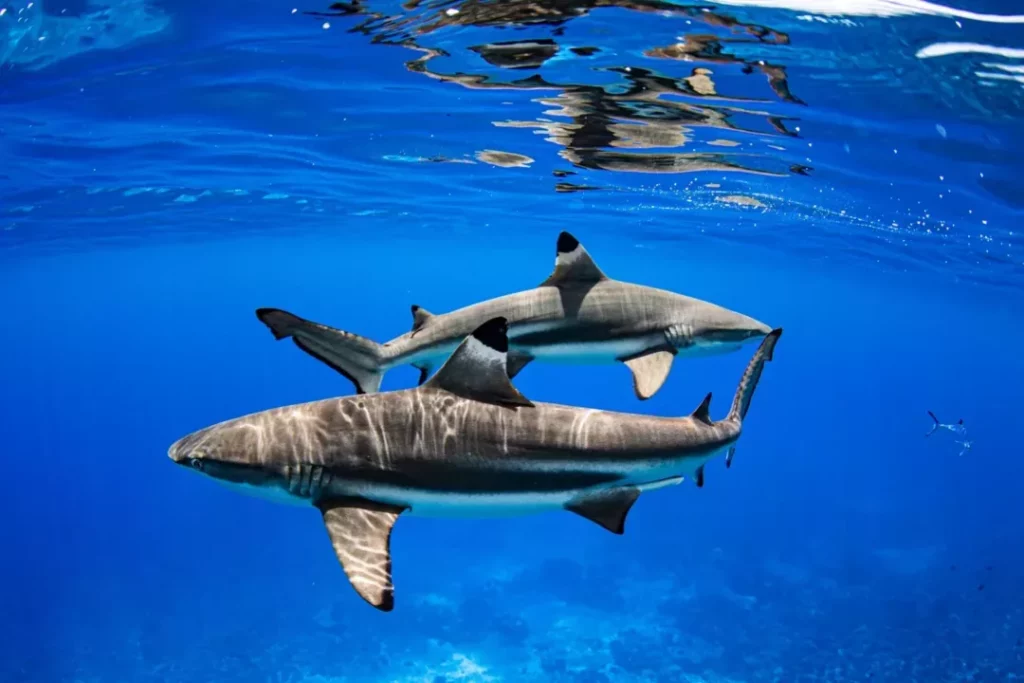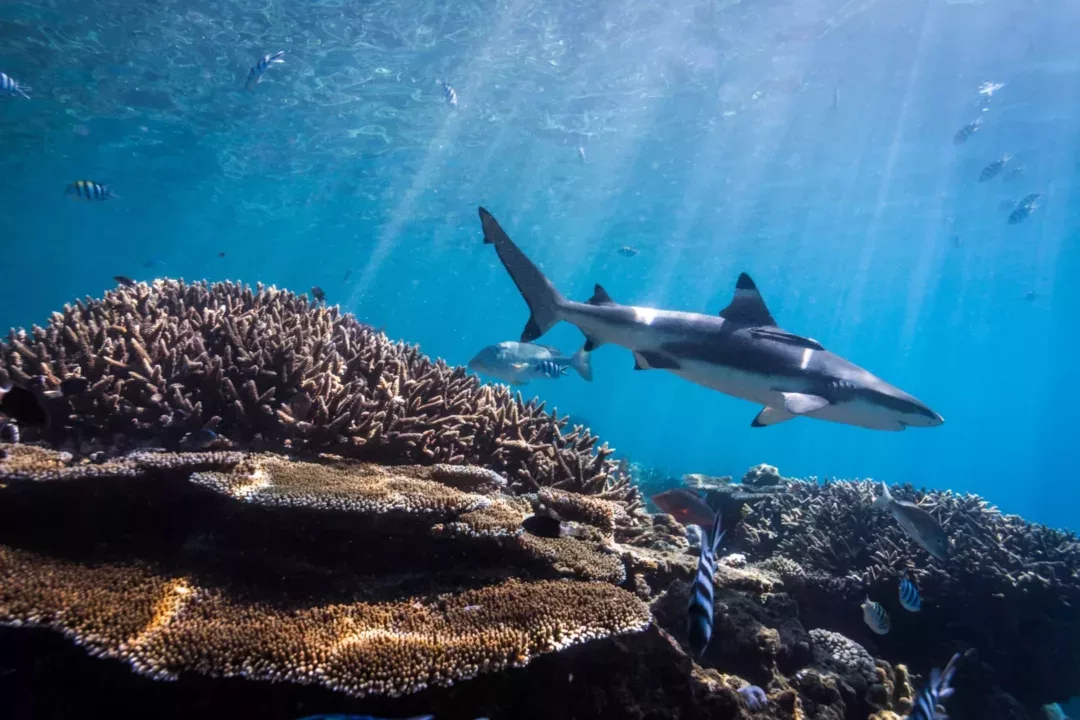The Wildlife Conservation Society (WCS), a member of the International Coral Reef Initiative has played a significant role in a global study titled ‘Widespread diversity deficits of coral reef sharks and rays’. This international research involving over 150 scientists, reveals that reef sharks are being pushed to extinction due to overfishing.

WCS researchers, namely Stacy Jupiter, Chico Birrell, and Luke Warwick, conducted data collection at WCS programs in Mesoamerica, Southeast Asia, Melanesia and East Africa, with the findings of the study recently published in the journal Science. Over the five year period, scientists, part of the Global FinPrint, a Paul G. Allen initiative, found alarming statistics indicating an average decline of 63 percent in the global population of the five main shark species residing in coral reefs: grey reef, blacktip reef, whitetip reef, nurse, and Caribbean reef sharks.

To gather these results, the researchers analysed 22,000 hours of video footage captured from baited underwater video stations situated across 391 reefs in 67 countries and territories. The extensive data revealed that overfishing is the main culprit driving reef sharks toward extinction. This large and diverse sample size, including data from multiple WCS shark conservation project sites indicates that this issue is more widespread, and the declines more serious than previously predicted.
Luke Warwick, the Director of Shark and Ray Conservation at WCS said, “The study further highlights that strong shark and ray protections, such as well-enforced MPA’s, bans on capture, or robust fisheries management measures have a significant positive effect on reef shark numbers. This is where WCS comes in. This science, which confirms many of the base principles of our shark and ray work, provides a roadmap for us to support conservation action where it is most needed”.

Early results from this study were previously used to update the status of four of these species to more threatened categories on the International Union for the Conservation of Natures (IUCN) Red List. The results also informed decisions during the most recent Conference of the Parties of the Convention on the International Trade in Endangered Species of Wild Fauna and Flora (CITES), helping world governments, with technical support led by WCS and a wide coalition of shark conservation partners, make the ground-breaking decision to better regulate trade in these reef sharks and more than 50 additional closely related species.
WCS will use this new study to further inform shark conservation efforts on national and local levels throughout country programs highlighted in the 10×10 Shark and Ray Strategy. With this worldwide effort, and with this crucial information now publicly available, WCS will continue its focus to turn international policies into shark conservation measures such as protections, fisheries management measures and marine protected areas.
Download PDF: Widespread diversity deficits of coral reef sharks and rays
Source: Adapted from WCS Press release https://newsroom.wcs.org/News-Releases/articleType/ArticleView/articleId/19226/Reef-Sharks-are-at-a-Much-Higher-Risk-of-Extinction-than-Previously-Thought.aspx
